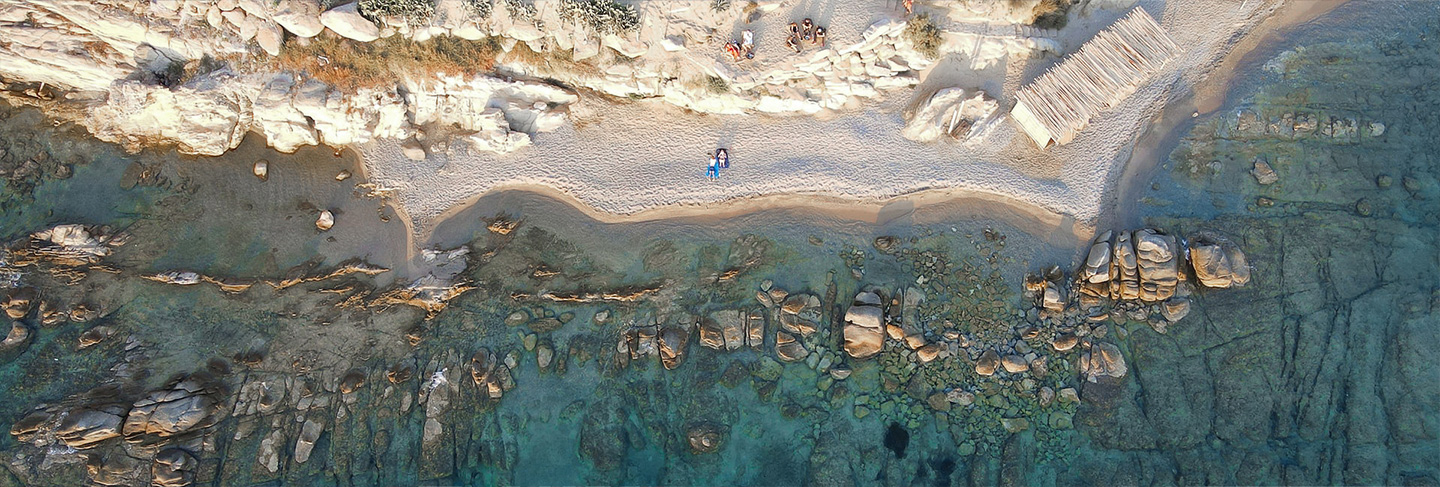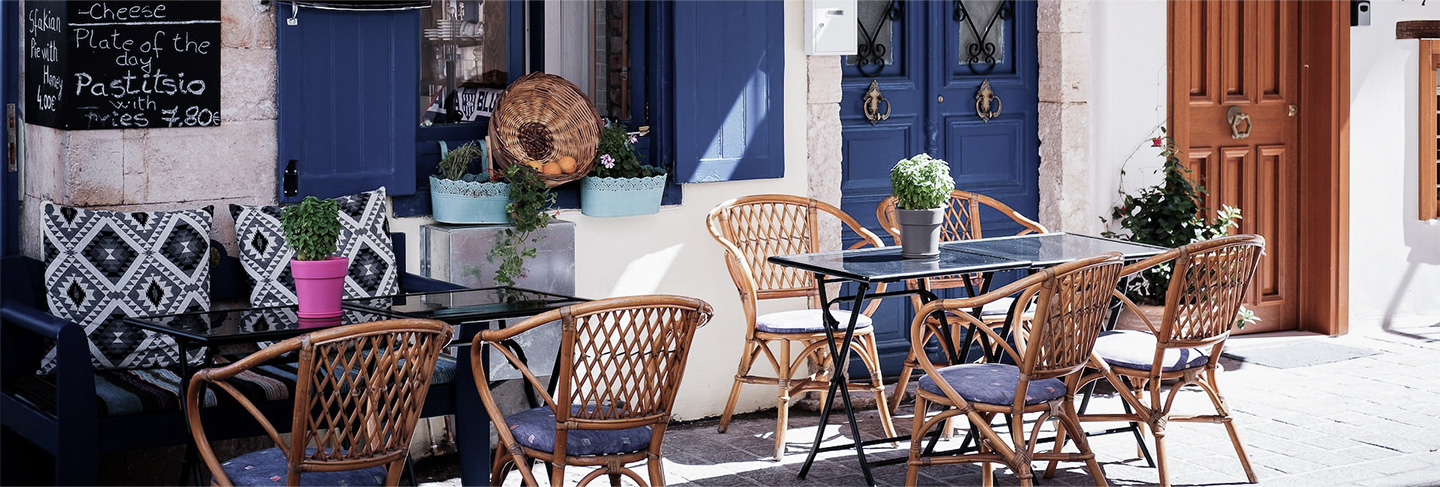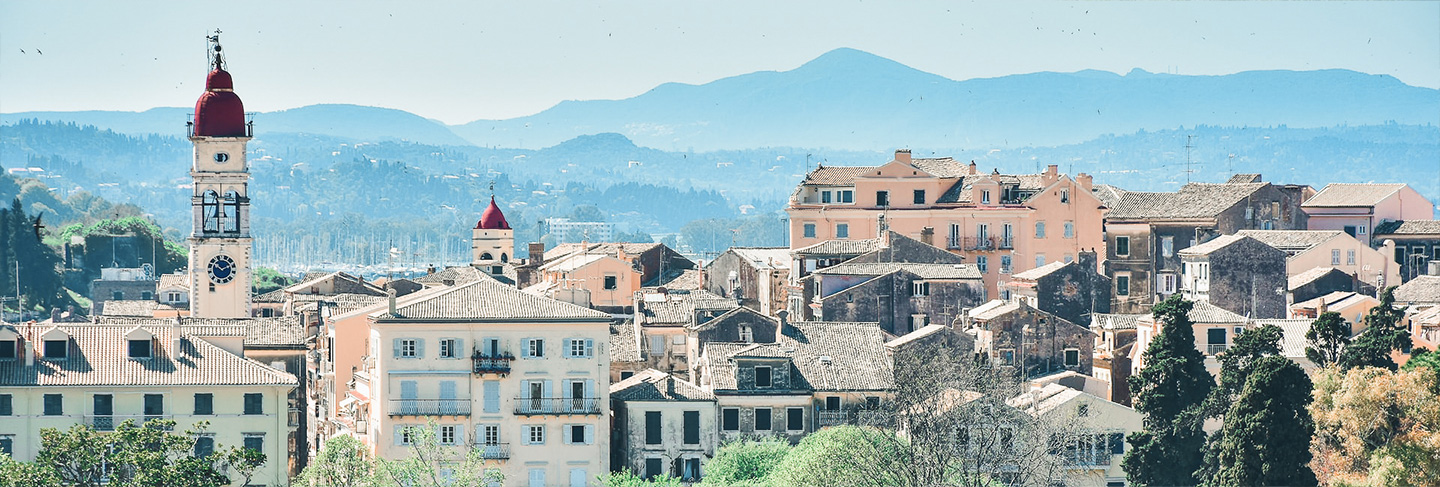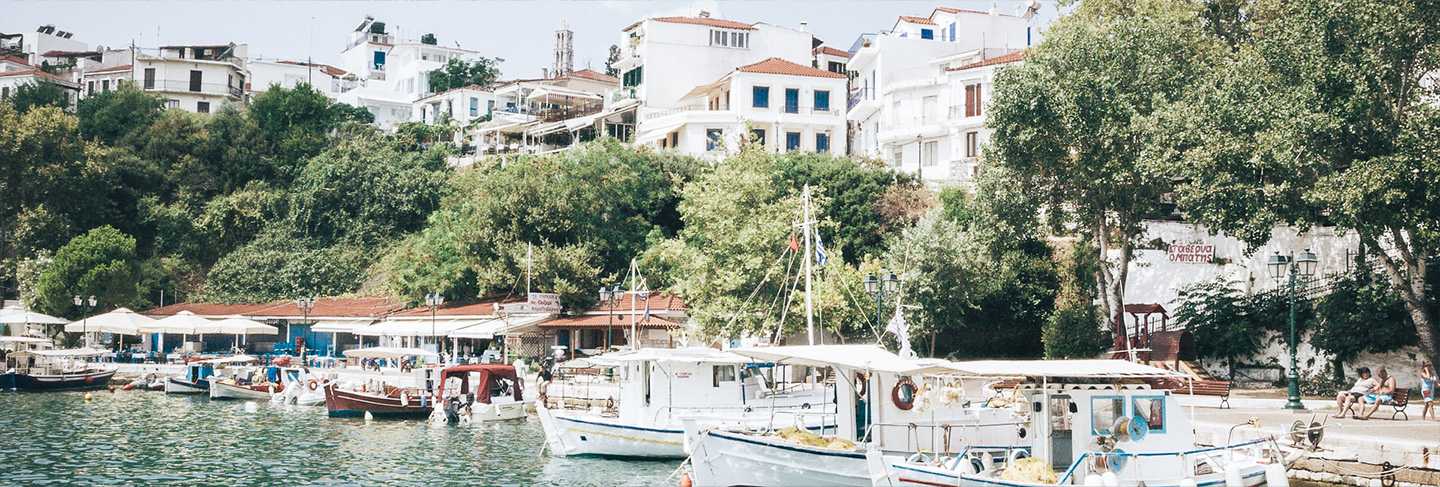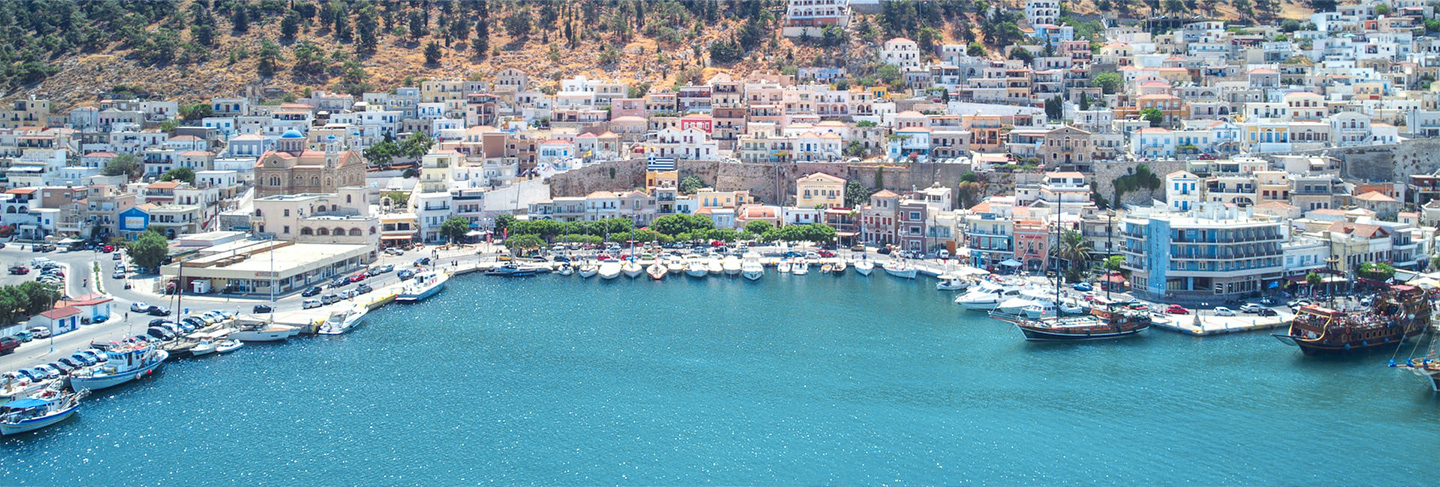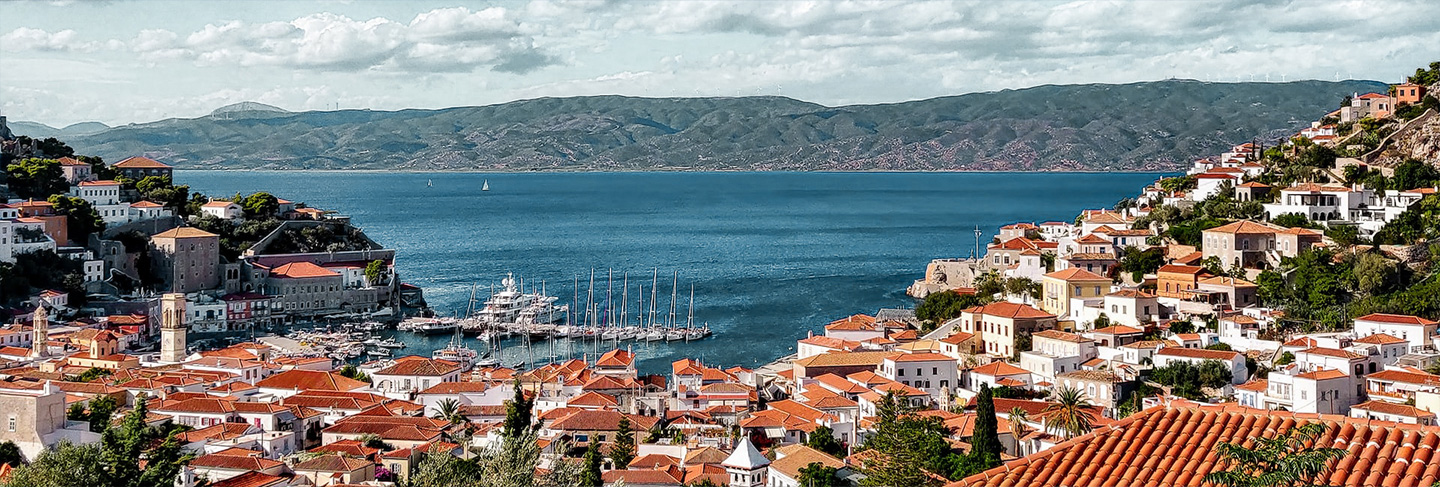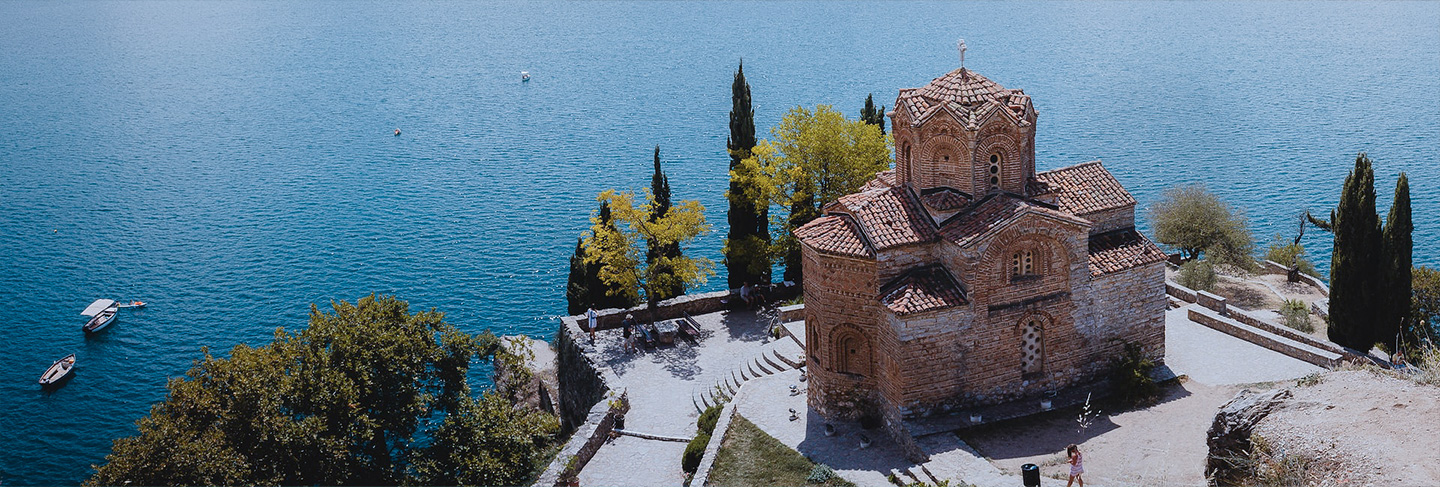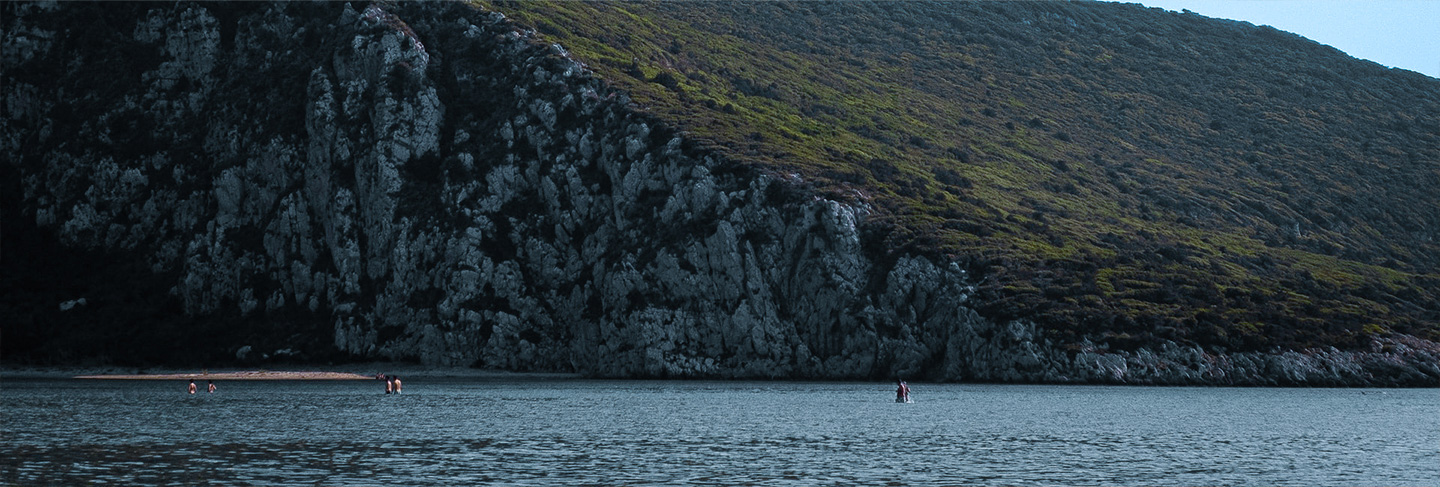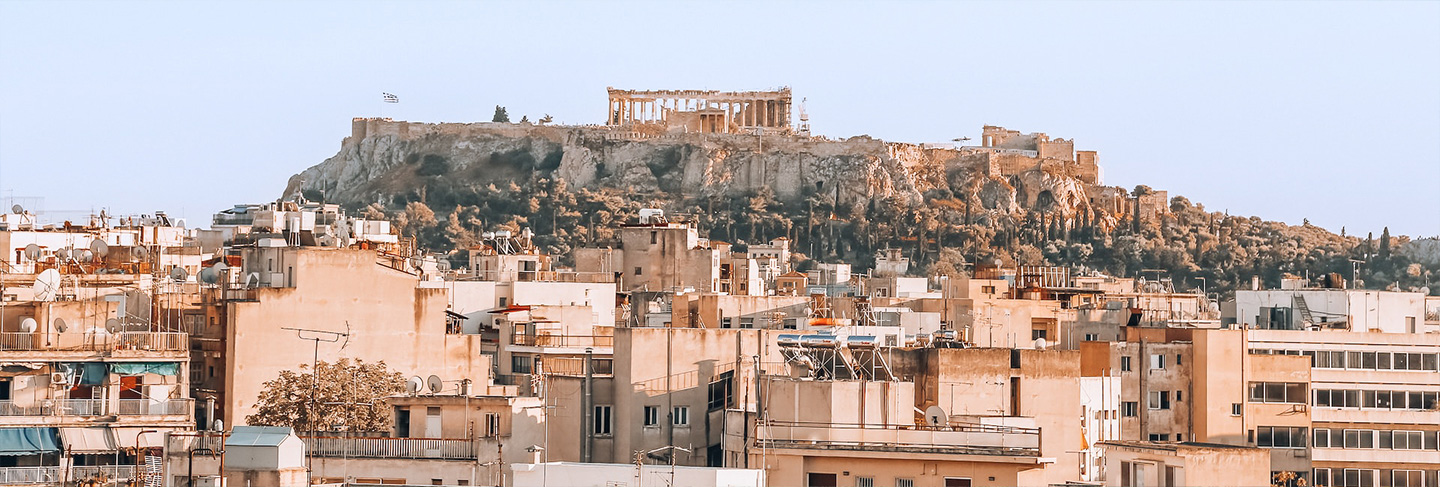The gleaming white houses, the crystalline waters, the quaint fishing villages and the mighty vestiges of a glorious past... mainland Greece and its surrounding islands are a paradise of poetic landscape, delicious food and glorious sunshine – in short, a celebration of the good life! And while it indeed boasts an embarrassment of historical riches, this sublime country is not chained to its past; the Greece of today is a thriving, joyful place with a cornucopia of delights to offer its visitors.
Each of Greece’s islands possesses its own distinct landscape and cultural identity: from the windmill pocked plains and bustling nightlife of Mykonos to the paradisical sands of Zante, from the natural wonders of Crete’s stunning Samarian Gorge to the Venetian charm and fascinating history of Corfu. While the mainland, and in particular Athens, boasts some of the most important archaeological sites in human civilisation, sitting alongside it all is a natural beauty that is almost unequalled in Europe, and indeed the world.
All of this begs the question: where should you rent a villa in Greece?
The biggest of Greece’s nearly 6000 islands, Crete is also the most diverse, with something for everyone; whether you’re looking to sip cocktails while enveloped in the cosmopolitan nightlife of Chania, sink your bare toes into the pink sands of its beaches (including the famous beaches, Elafonisi and Balos), gaze at the magnificent snow-capped Lefka Ori mountains or hike the breath-taking Samaria Gorge, you can’t fail to be impressed by all this storied island has to share with you.
Of course, being Greece, there is no shortage of archaeological ruins and myth woven through these natural wonders. This, of course is the island that gave us the story of Icarus and Daedalus, and the birthplace of Apollo. Here you can take a trip to the Minoan Palaces of Knossos and visit the labyrinth where Theseus slayed the minotaur. Or how about heading to Phaistos, the site where the ancient clay Disc of Phaistos was discovered (although the secrets of its cryptic symbols are still to be revealed)?
Alternatively, you can simply opt for sampling some of the local Cretan delicacies, such as gyros or souvlaki, while looking out from a white-walled taverna perched next to the Venetian harbour of Heraklion. Sounds wonderful, doesn’t it?
Lying to the west of the Greek mainland, these 7 islands, for centuries a part of the Venetian Empire, make up the smallest of Greece’s regions. But what they lack in size, they more than make up for in native charm, exquisite natural beauty and splendid architecture, not to mention colossal literary relevance.
Indeed, Homer’s Ithaca – home of Odysseus - is to be found within the breath-taking shoreline of Kefalonia, although the exact whereabouts of which is still the source of much debate. Meanwhile, the idyllic setting of Captain Corelli’s Mandolin and the works of George Durrell among others have kept people flocking to the soft white sands and turquoise waters of these verdant islands.
Corfu – the northernmost of the island chain - is more humid than the other islands, bestowing it a natural greenery and lushness not seen elsewhere, whereas the powder blue seas and pure white sands of Zakynthos (Zante) offer arguably the most awe-inspiring visual treats, among them Navagio, or “Shipwreck beach”, as idyllic an image of a secluded paradise you could hope to find. Meanwhile, Lefkada, which is connected to the mainland via a bridge, lays a strong claim to being the Caribbean of Greece, thanks to its stunning beaches, and laid-back ambience.
While the temptation to simply laze atop Ionian sands listening to the waves lapping at the shore remains strong, there are also plenty of activities to do throughout the Ionian islands, making them ideal for family holidays.
Perhaps the most famous of the Greek archipelagos, the Cyclades take their name from the circle they form around the sacred island of Delos, the birthplace of Aphrodite. The myth of their origin has it that they were nymphs who so inflamed the wrath of Poseidon that he turned them into islands by way of punishment. The nymphs loss has no doubt led to our gain, as the Cyclades boast some of the finest beaches, turquoise waters and charming white and blue villages in all of Greece.
Of the most famous of its islands, Mykonos is the party isle, in summer rivalling Ibiza for its wild nightlife. But it offers so much more than this, with over 25 of the finest beaches this archipelago has to offer – perfect for recharging one’s batteries with more wholesome pastimes.
Santorini, meanwhile, is the picture postcard image of a Greek island, the famous blue dome of its church, with the backdrop of its white stone tavernas set against startlingly azure waters, now almost inextricable from our idea of a Greek island holiday. But it’s so much more than just a photo – its wineries, famous red beach, delightful little bookshops and excursion to the volcano also offer something outside of the ordinary.
Then there is Paros, somewhat more understated, with plenty of family-friendly beaches and activities, but coupled with the trendy cocktail bars and portside restaurants of its capital Parikia. As with most of the Cyclades, the winds can pick up in the summer, so don’t forget to pack a cardigan for after the sun goes down.
The smaller islands of Antiparos and Syros charm with a serenity and laidback beauty all their own. They’re perfect for couples or a family holiday, where getting further from the crowds allows you to get closer to one another.
But it doesn’t stop there – the islands of Tinos (the religious capital of Greece) and its more authentic charms, Sifnos and its fantastic food festival, the lush greenery and lively villages of Naxos all offer something distinct to those who choose to book a villa in the Cyclades.
Sat among the azure waters of the Aegean Sea, not far from the eastern shores of the mainland, the four islands that make up the Sporades boast the diverse landscapes and quaint villages that we have come to expect from a Greek holiday.
Skiathos is popular with young people, due to the wide renown of its nightlife. While those looking for a drink and a dance should head there, it would be foolish to label it as simply a party island. Skiathos possesses wonderful greenery, where forests and lagoons abound, and natural sea caves, not to mention and the gorgeous Koukounaries beach – the posterchild of the island’s burgeoning ecotourism initiatives. Meanwhile, Alonissos, with its delightful capital Chora, pine-topped hills and scattered islets, provides the perfect backdrop for a quieter, more intimate stay, either with your family or partner.
These quiet islands located between the popular Cyclades island chain and the coast of Turkey possess a quality quite different to the other Greek islands. Less popular with hordes of tourists, their laidback feel and almost palpable sense of distance from the rest of Greece allow them to reveal their gentle charms over time, while their topography provide something of a playground for adventurers.
Most well-known among them are the islands of Kos and Rhodes, both of which are brimming with history and monuments. Meanwhile, the landscape of Kalymnos has led to it becoming popular among rock climbers in recent years, and the wreck-peppered seabed of Leros also affords excellent scuba-diving opportunities.
Samos too has plenty to offer someone who is seeking something different. Beyond its picturesque villages and sumptuous unspoilt beaches, it offers plenty of family-friendly activities, including windsurfing, diving and hikes that lead you past waterfalls and vineyards, monasteries and caves.
Finally, the spiritual importance of Patmos, the island where St John wrote the Book of Revelation, makes it a sacred site for many pilgrims, who no doubt also take a moment to enjoy its gorgeous secluded beaches!
These beautiful islands, the mythical island of Hydra among them, are popular with those who would like to stay within easy reach of Athens, given their location in the Saronic Gulf between Attica and the peninsula of Peloponnese, affording relatively brief ferry trips between the islands and the mainland.
But there is a great deal more to the Saronic Islands than simple convenience to those seeking easy access to (and a refuge from) the bustle of mainland Athens. While cosmopolitan Spetses may lack the paradisical beaches of the Cyclades, it boasts superb architecture and excellent bars and stylish boutiques, where fashionistas can look out over the waters to the mainland and sip a cocktail in the old harbour after a day of shopping and delighting in the picturesque streets.
Meanwhile, Hydra, where a young Leonard Cohen penned some of his most famous songs, does not allow cars on the island, instead utilising donkeys to carry one’s belongings. This rustic approach to life lends the island a serenity and magical atmosphere not easy to come by elsewhere. Take a walk among the winding streets of its capital, Hydra, or a hike along the many footpaths that criss-cross this splendid island.
The north of the mainland has thick ancient forests and great swathes of mountains and boasts lakes and wetlands (particularly towards the west).
However, as you get closer to the coast, the likes of Macedonia afford you the best of both worlds: idyllic beaches coupled with verdant hills topped with stretches of olive groves. The coastline tends to be a little more rugged than further south, offering a wilder untamed beauty.
So rich is it in beauty, history and culture, the peninsula of Peloponnese alone has more to offer the holiday-goer than many whole countries. It is the region that contains many of the most fascinating archaeological sites in all of Greece, including Olympus, Mycenae and Epidaurus, not to mention a coastline where you can find some of the country’s most celebrated beaches.
Woven in and out of the whole region, are of course the Greek myths. This is the region where Heracles undertook his labours, where Prometheus stole fire from the gods, where the Argonauts set sail from in search of the golden fleece.
Myth aside, this is also a region of stunning natural beauty and an embracing of the good life. You cannot fail to be charmed by the hidden, unspoilt coves of Porto Heli, nor its cosmopolitan harbour, ideal for lazy afternoons idly watching the fishing boats come and go across its turquoise waters.
Families will be delighted by the activities available for children in Pylos, as well as the unforgettable boat trips around its Navarino Bay. Take the children to see the flamingos at the protected Gialova Lagoon.
Perhaps not needing an introduction, Attica’s capital Athens is, put simply, the birthplace of western civilization and the site of some of the most important monuments on Earth. The city of today is a bustling metropolis, alive with the aroma of its sensational cuisine and the joyous sound of its bars, restaurants and lively locals.
For those who seek something a little more subdued, the upmarket area of Lagonisi, approximately 30km west of Athens, provides both easy access to the city and picture-perfect turquoise waters.
